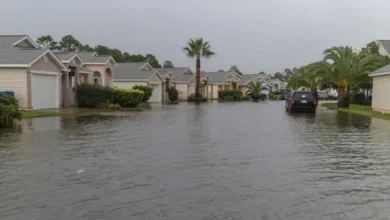IMF says Caribbean economy turning corner “after a long and deep recession”
WASHINGTON, DC – The Washington-based International Monetary Fund (IMF) says that the Caribbean is beginning to turn the corner after a “long and deep recession.”
In its latest “Regional Economic Outlook,” the financial institution said weak external demand and high public debt levels have held back economic activity in much of the region for the last two years, “which has also been adversely affected by natural disasters.”
It said tourism is “recovering gradually,” with The Bahamas, Barbados, Dominican Republic, and Jamaica observing a “faster and earlier pickup in tourist arrivals” than the islands of the Eastern Caribbean Currency Union (ECCU).
The IMF said the Caribbean economy, excluding the Dominican Republic and Haiti, is projected to expand by an average of about two percent in 2011, following a contraction of about 0.5 percent last year.
“The recovery is supported by a mild improvement in labour market conditions in advanced economies, as fiscal consolidation proceeds in most of the region,” it said.
However, it said rising commodity import prices present a “clear downside risk for most countries, with the exception of Trinidad and Tobago, which stands to benefit from higher oil export prices.”
Meanwhile, the report said reconstruction efforts in Haiti are expected to take growth above eight percent this year.
Given the high debt burden in most countries, the report said fiscal consolidation should proceed, stating that efforts will be needed to reallocate spending to protect the poor from the impact of higher food and energy prices.
“Special efforts will be required to contain expenditure growth and, in particular, wages to strengthen overall competitiveness,” it said, warning that price subsidies should be avoided, particularly in the case of energy, “as they tend to be costly and limit substitution”.
In countries, where a well-functioning social safety net is not in place, the IMF recommended that temporary subsidies on staples consumed by the poor be considered, “with the fiscal cost offset by adjustments in other fiscal outlays”.
It said the region’s financial system “remains vulnerable” to shocks from cross-border financial conglomerates, adding that the resolution of the insurance subsidiaries of the CL Financial Group in Trinidad and Tobago is still pending, “with potentially large fiscal costs.”
The report said “contingent liabilities” could reach 10 percent of the Gross Domestic Product (GDP) in Trinidad and Tobago, “where investors are being paid in full up to a threshold, while the remaining amounts are restructured”.
In the ECCU, where insurance claims exceed 17 percent of GDP, it said the restructuring of the failed subsidiary is “proceeding more slowly,” adding that, in Barbados, a judicial manager is being appointed to oversee the resolution process.
“Regulators should aim to complete the resolution while containing fiscal costs, “it said, adding that improved export performance is “crucial to boosting and sustaining growth” in the Caribbean over the medium term.
It said efforts to further develop and diversify Caribbean exports are needed, including by refreshing the tourism product by diversifying markets, for example, to South America.
The IMF noted that some Caribbean countries are considering diversifying their economies through the further development of offshore financial services (OFCs).
It said not only do OFCs provide employment opportunities for local labour, but they can also generate spillovers to other sectors in the economy, including tourism and infrastructure, “because they require improved telecommunication and transportation”.
“Indeed, the empirical evidence suggests that OFC-related portfolio flows contribute to economic growth,” it said, adding “although OFCs account for a relatively smaller share of GDP in sovereign Caribbean countries, in some countries (Bahamas and Barbados) their economic/fiscal contribution is significant.”


